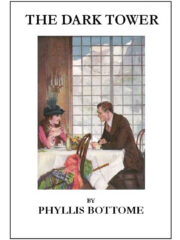The general hesitated, but Winn’s fiery sunken eyes held and shook him.
“Well, Staines,” he said, “you know what you can do with your men, of course. Have it your own way. When do you want to attack?”
“Soon as they’ve settled off to sleep,” said Winn, “just to give ’em a night-cap.”
“Don’t lose too many men,” said the general, “and above all come back yourself.”
“That’s as may be,” said Winn. “If I can get the men over quietly in a bit of mist, I sha’n’t lose too many of ’em. I’ve told them if they’re too fagged to stand, they’d better fight. They quite agree about it.”
Winn led the attack with the last of his strength, and in the fierceness of his rage with life.
A white fog hung over the fields like the shadow of a valley filled with snow.
The men fought like demons — strange shapes in the fog, with here and there as the flames shot up, the flash of their black faces, set to kill.
Winn’s voice rallied and held them above the racket of the spitting rifles, and the incessant coughing of the guns. It was the Staines voice let out on a last voyage. To have gone back against it would have been more dangerous than to go on against the guns.
They seized the trench and held it, there were no prisoners taken in the dark, and after the first light they ceased to hear Winn’s voice.
The sun came out and showed them all they had won, and what they had lost.
Winn lay peacefully between the old trench and the new, beyond resentment, beyond confusion, in the direct simplicity of death.


"The Dark Tower" отзывы
Отзывы читателей о книге "The Dark Tower". Читайте комментарии и мнения людей о произведении.
Понравилась книга? Поделитесь впечатлениями - оставьте Ваш отзыв и расскажите о книге "The Dark Tower" друзьям в соцсетях.